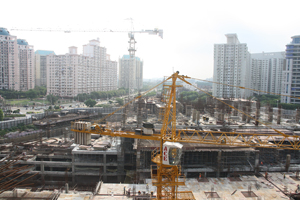
India’s economic boom, which has led to hectic construction of roads, bridges, metro rail and tall buildings, is also witnessing an increase in crane accidents. On average, two accidents involving lifting equipment occur daily in the country, reports The Times of India.
The problem areas are in maintenance, inspection and operations. Companies compensate by "upskilling" their workers. Third-party firms are approved by the government to certify condition of the cranes, and Indian standards exist for the safe use of cranes. However, implementation remains spotty.
The issue is common to many markets in Asia that rely on second-hand cranes that are prone to failure and that have few regional safety regulations. An exception is Singapore, which has worked hard to raise crane standards and awareness. All cranes in Singapore are subjected to a monthly inspection.
In these emerging markets, tower cranes have been found to have the highest accident rate. “A known cause is lack of maintenance on a daily basis,” says Pradeep Pandey, chief operating officer of Bangalore-based Vasoo Builders. "Limit switches and wire ropes are common failures. They should be checked for breakage and damage on a daily basis and are often ignored."
Particularly during seasonal monsoons, it is necessary to ensure there is no water in the foundation, or the crane's base can lose its grip. Also, if a crane is not vertical, it can cause instability, Pandey adds.
Accidents also have been caused by violations of safety rules by operators who have insufficient knowledge and training on lifting operations. Management often is to blame for not putting in place safe work procedures for lifting.
“Around 60% of the cranes require experienced operators. The labor ministry should formulate a regulation for crane operators," says P. Mathur of Crane Inspection India, a third-party inspection and certification body.
Others have called for a step beyond training, requiring crane operators in emerging markets to take certification exams to prove their skill and knowledge.
“Training without assessment is like a kiss without a squeeze—meaningless,” said Michael George Hoyle, a crane consultant working with ExxonMobil, at a crane conference in Singapore last year.

Post a comment to this article
Report Abusive Comment